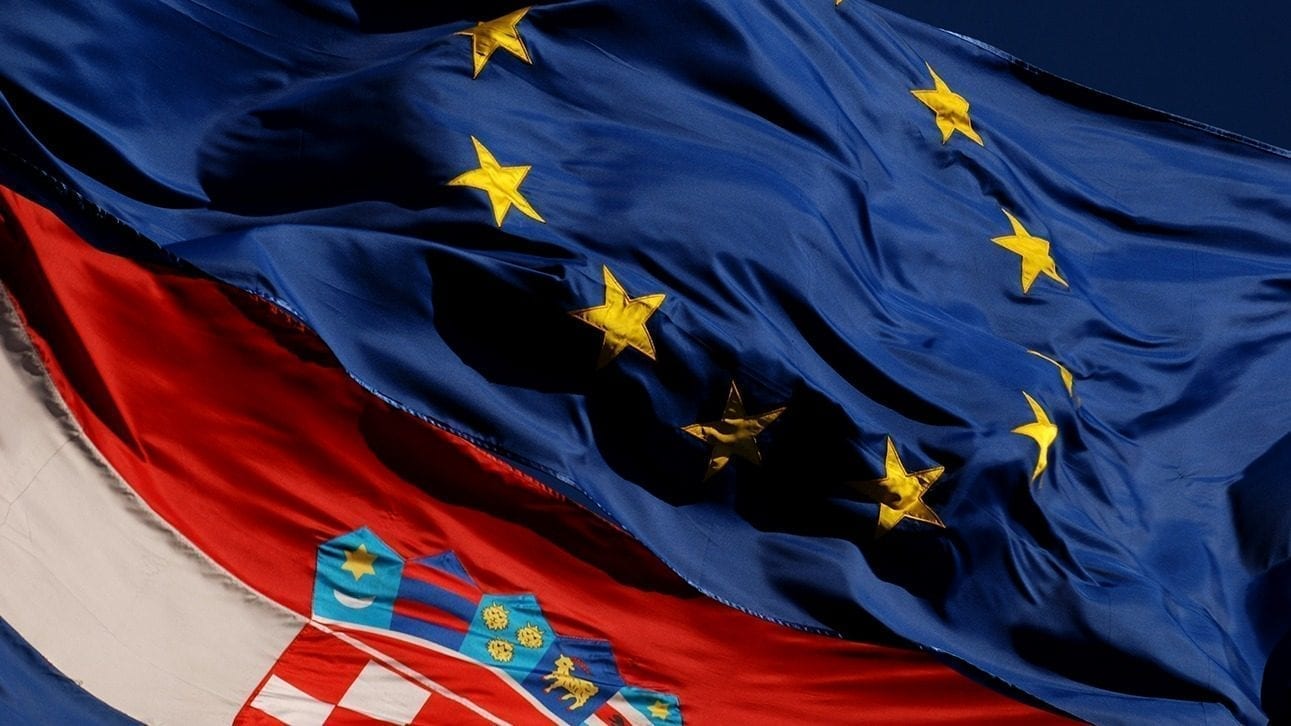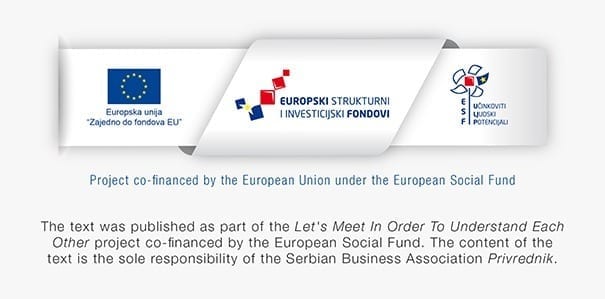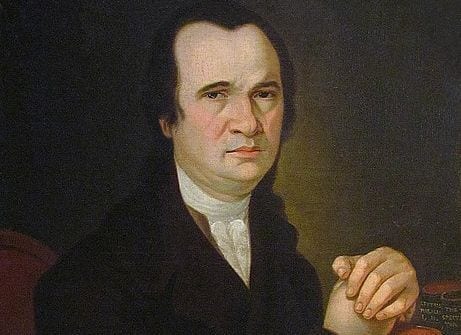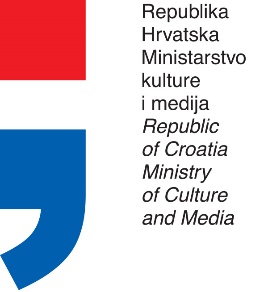Although there are around 50 million members of national and linguistic minorities living in the EU, their rights have not yet been regulated at the level of this political and economic community. At the same time, due to the erosion of democratic principles throughout Europe, we are witnessing either a deterioration or a stagnation of minorities’ status and rights, which were the preconditions for each country’s inclusion into the EU.
However, a step towards improving minority rights was taken last week at the plenary session of the European Parliament, at which MEPs adopted a resolution calling on the European Commission to draw up legislation to protect the cultural and linguistic diversity in the European Union, based on the proposals of the Minority SafePack Initiative – MSPI (a set of policies for the protection of minorities).
Minorities are assimilated and lose their languages
In the resolution, adopted with 524 votes in favor, 67 against and 103 abstentions, the Parliament affirms its support, stating that “national and linguistic minorities in the EU face assimilation and lose their languages, resulting in linguistic and cultural impoverishment of Europe”.
Last week’s development is the result of long-standing efforts by the Federal Union of European Nationalities, which coordinated the initiative. European citizens’ initiatives, such as MSPI, are envisioned as an instrument of democratic participation of citizens in EU policies.
If more than one million citizens from at least seven member states support the initiative, EU has to take certain measures. In 2018 MSPI gathered 1,123,422 signatures by European citizens of age, after which it continued with the procedure. Now, after the Parliament has voted in favor of it, the European Commission has to propose legislation concerning the minority initiative in the next six months or state the reasons why it refuses to do so.
Our interviewees, most of whom are actively involved in the Initiative’s work, say that they are very satisfied with the recent progress. However, along with waiting for the further steps of the European Commission, it remains to be seen how willing the member states are to apply the resolution and how it will reflect on local minority communities
Regulations and recommendations are not binding
Angelika Mlinar, former Slovenian MEP and vice-president of the FUEN, confirmed that currently within the European Union there are no major legally-binding regulations concerning the protection of national minorities, but that this should be rectified.
Although the Copenhagen criteria – the conditions for joining the European Union – require that the candidates have national protection of their national minorities, Mlinar points out that “there are no directly enforceable legal norms in the primary law of the EU that would enable collective rights or collective protection of the citizens of the EU who belong to autochthonous minorities.”

In order to permanently raise the issue of minority rights to the level of the European Union, they propose the adoption of a recommendation to improve the protection of and promote the cultural and linguistic diversity in the EU, focusing especially on protecting the use of regional and minority languages in the areas of public administration, public services, education, culture, the judiciary, media, health care, commerce, etc. They also propose a set of legislative acts from various areas that would be useful for national minorities in the EU.
Better access to funds
Asked how the success of the minority initiative will influence the improvement of the status of national minorities at the local level, Mlinar explains that they will be able to access EU funds more easily. For example, their idea is to integrate national minorities and multilingualism into the goals of the European Regional Development Fund, one of the main funds of the EU, which aims to strengthen the economic and social cohesion in the EU by redressing the imbalance between its regions.
“This would especially lead to the strengthening of minority regions and would indirectly be useful for local authorities as well,” Mlinar says and adds that they are also calling for a change and simplification of access to funding programs of the EU “in order to allow small minority communities to apply for funding.”
Mlinar also adds that in some of the most important programs for education and training funded by the EU, such as “Socrates” and “Leonard”, only around 10% was dedicated to minority languages.
“That is why the new generation of programs should include a section for regional, minority and endangered languages. This section should have lower thresholds and simplified administrative procedures suited to the size of the grants, which will enable small NGOs from these communities to use these types of funding while, naturally, following public procurement rules of EU institutions,” she concludes.
Large differences within the EU
General secretary of the Serb National Council Saša Milošević told us that they followed the events in the European Parliament eagerly and that they, too, were intensely involved in preparing and carrying out the initiative.
This initiative, Milošević says, is important “literally for every European minority because there is no country without a larger or smaller number of minorities”. Since in the European Union “simply everything, literally everything, is regulated,” from the quality of elevators and the designation for gasoline to the size of product packaging, he believes that the rights of minorities should also be better regulated.

“There are too few written laws or written customs about such a great and important issue which concerns tens of millions of people, their languages, cultures, heritage and traditions, and the differences between European countries are too large. The level of respect for minority rights simply has to increase significantly,” Milošević tells us.
When countries join the European Union, the level of their dedication to the fundamental European idea, the respect for human rights, the separation of the judicial and executive branches, the freedom of media, the rights of women, etc., declines.
One big problem for the EU, according to Milošević, is the lack of self-regulating mechanisms. In other words, when countries join the European Union, the level of their dedication to the fundamental European idea, the respect for human rights, the separation of the judicial and executive branches, the freedom of media, the rights of women, etc., declines, which Milošević illustrates with the examples of Poland and Hungary.
He adds that minority issues differ greatly from country to country, with specific situations such as the problems of Turks in Greece, Catalonians in Spain or Bretons in France.
The Constitutional Act on the Rights of National Minorities – a dead letter
“When it comes to Croatia, the weaknesses of our system of protection and promotion of human rights have been known for years. What troubles my community, the Serbs, is the return of refugees, which stalled years ago. There is still a lot of discrimination, the contribution of the Serbian minority to the development of this society is not recognized, there are problems with education in the minority language, registration of schools, discrimination at work, etc.,” Milošević explains.
According to the report by the Human Rights House Zagreb “Human Rights in Croatia: an Overview for 2019”, published this April, many problems of minority communities remain unsolved.
“There was no significant progress in carrying out the Constitutional Act on the Rights of National Minorities, mostly due to a lack of appropriate sanctions for not following the provisions of the Act,” the report states.
Moreover, although 21 municipalities and cities in Croatia are legally obligated to officially use the language and script of the Serbian minority, the report states that this obligation is practically ignored and that “in most cases, the Serbian language and Cyrillic script are not present on signs on institutions and town signs; there are also no forms or materials for use in public administration in the language of the Serbian minority”.
Milošević also claims that a number of things concerning education, not only of Serbs, but of Roma as well, “simply aren’t fulfilled,” and that this could be resolved with the passing of the new European regulation or a set of regulations.
Without the EU’s support, some minority communities will simply disappear
Tanja Novotni Golubić, deputy prefect and a member of the Czech national minority of the Bjelovar-Bilogora County, joined MSPI’s campaign and is also satisfied with the recent success of the Initiative.
“Unfortunately, without the financial and political support of the European Union, some minority communities will disappear, and I believe that it is high time for the EU to take a part of responsibility for their preservation,” Novotni Golubić says for P-portal.
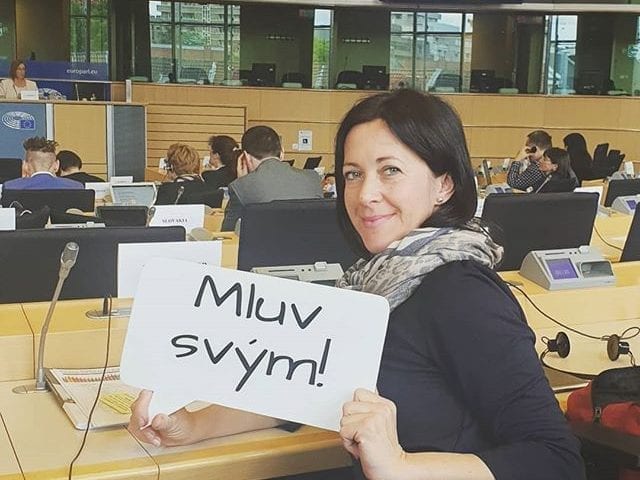
She is especially glad that Croatia is one of the eleven countries where the necessary number of signatures was collected, adding that the Initiative placed a crystal-clear request before European institutions: “The citizens of the EU want to have a legislative framework for the protection of the rights of minorities because they want to believe that the EU’s motto ‘United in diversity’ is valid in the EU.”
“Like all minority communities in Europe, the Czech minority in Croatia wants the EU to take concrete and effective measures to protect the identity and the cultural and linguistic rights of minority members by realizing their rights to education and private and public use of minority language without discrimination and by promoting the policy of non-discrimination and the fight against hate speech,” she continues.
Of the challenges her minority community needs to face in Croatia, she highlights the census which is to take place next year because the minority rights of the Czech community depend on the number of the members of the minority who identify as such, and it is therefore important “that as many of my compatriots as possible identify as members of the Czech minority.”
“Like most minority communities, we face assimilation, population ageing and brain drain to larger cities and abroad,” she says and adds that the Czech minority is generally satisfied with the realization of their rights and their current status in Croatia.
“We therefore use every opportunity to promote the places where Czechs live and co-create them as tolerant and peaceful communities where we strive for mutual respect, understanding and cooperation, where the mosaic of cultures, languages, traditions and histories is an advantage and constitutes a diverse community of citizens united by common, fundamental human values,” Novotni Golubić says.
She believes that the legal solutions proposed by the EU would certainly bring greater and more efficient protection of minority rights. “If the EU passes them, the countries of the EU will have to implement them in their legislature. I would also like to point out that their concrete application will not jeopardize the current levels of minority protection in certain countries,” she adds.
Nothing about us without us
One of the demands of MSPI is equality for minorities without citizenship, which most often pertains to the Roma community. Two years ago, the Alliance of Roma in the Republic of Croatia “Kali Sara” collected 651 signatures to support the Minority SafePack Initiative and thus supported the enaction of concrete measures to ensure the survival of linguistic and national minorities in the EU.
The report by Human Right House states that members of the Roma national minority also “face numerous obstacles in realizing their rights, especially in employment and the access to social services, while many Roma still live in inadequate living conditions.”
Unlike our previous interviewees, Benjamin Ignac, a scientist working in the Berlin Roma Initiatives Office of the Open Society Foundations, was not involved in the MSPI. However, since he has been involved in Roma rights for a long time, and having spent a part of his childhood and youth in Međimurje, the region where almost half of the Roma population in Croatia live, we decided to ask him for his opinion.

Ignac believes that the MSPI, as an initiative carried out by citizens to directly influence EU policies, could be a good opportunity “for representing Roma interests and rights, which are often overlooked in EU countries.”
“What is also important to consider is to what extent this group of citizens is actually going to represent the specific needs of different Roma communities in Europe,” Ignac says, wondering also how many Roma or members of marginalized ethnic minorities are part of the Initiative and how many Roma votes participated in its creation.
“I am sure they gave their best, but I hate to be that Rom who says, ‘Nothing about us without us.’ Nevertheless, it is a minority initiative created by EU citizens, and Roma are the largest and the most discriminated minority in Europe, so that should definitely be reflected in the Initiative.”
Member countries of the EU show a lot of interest for minority issues, but only when it comes to the rights of the members of their ethnic groups in other countries
We do not, therefore, need to go far geographically to conclude that the rights of the Roma people are endangered outside Croatia as well. In neighboring Hungary, already under the EU’s scrutiny because of the deteriorating protection of human rights, the Roma live in poverty, suffer prejudice in schools and in workplaces and are subjected to intimidation and violence by the far-right.
On the other hand, the greatest number of signatures, 643,791 of them, come from this same Hungary, as well as the support for the Initiative from Prime Minister Viktor Orban. Hungary is just one of the members of the EU that show great interest for minority issues, at least when it comes to the rights of the members of their ethnic groups in other countries. The question that remains, for Hungary and everyone else, is how much they will truly be dedicated to the protection of national minorities “in their own backyard”.
Translation from Croatian: Jelena Šimpraga

